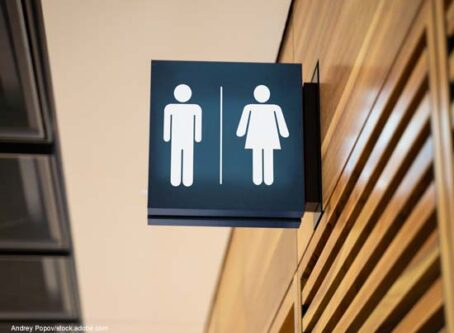Multiple states pursue end to ticket quotas
Work continues at statehouses around the country to address concerns about practices that force law enforcement officers to partake in ticket quotas.
Municipalities nationwide are able to generate revenue from different types of fines. In some jurisdictions, fines account for a disproportionate amount of local revenue – known as being speed traps.
The National Motorists Association says that “a speed trap exists wherever traffic enforcement is focused on extracting revenue from drivers instead of improving safety.”
About 20 states have acted to discourage practices that pressure law enforcement officers to write tickets.
State legislators from Alabama to New York have taken up for consideration rules aimed to eliminate potential abuse.
Alabama
In Alabama, one Senate bill is intended to discourage ticketing abuse.
Sponsored by Sen. Garlan Gudger, R-Cullman, the bill would limit the amount of money a municipality could retain from fines and penalties from traffic tickets.
Specifically, municipal traffic fines and penalties could not exceed 10% of the municipality’s general operating budget.
Excess funds would be deposited in a crime victims fund and a court fund.
A proposed amendment would not apply the rule to Class 1 municipalities.
The Senate Judiciary Committee has voted to advance SB282 for further consideration.
Michigan
Legislation in Michigan would revise the state’s rule on issuing citations.
Since 2010, Michigan law prohibits a police officer from being required to issue a certain number of citations for traffic offenses.
According to a legislative analysis at the time, even though police departments were generally prohibited from requiring officers to write a specified number of tickets, there were reports about departments that engaged in related practices. Examples included offering prizes to the officer who wrote the most tickets in a time period or withholding promotions from officers who issue few tickets.
The 2010 law attempted to address concerns about abuse. However, an exception provided in the law authorizes ticket numbers to be used as part of a police officer’s evaluation system.
The lone requirement for the inclusion of the ticket writing component is that the issuance of citations is not given any greater consideration than any other factor in the evaluation of an officer’s performance.
Sen. Jeff Irwin, D-Ann Arbor, is behind a bill to revise statute to prohibit a police officer’s performance evaluation from including any consideration of citations issued.
The bill, SB599, is in the Senate Judiciary and Public Safety Committee. A similar House bill, HB5723, is in the House Government Operations Committee.
New York
In New York, bills in both chambers also cover the issue of ticket quotas.
The Empire State prohibits an employer from transferring or penalizing a police officer for failure to meet an established ticket quota.
Sen. Elijah Reichlin-Melnick, D-Nanuet, pointed out it is possible, however, that an employer could deny a promotion to a police officer who fails to meet a ticket quota.
“Penalties should always be used as a means to an end – incentivizing compliance – and should never come to be viewed as a guaranteed source of revenue,” Reichlin-Melnick wrote in a bill memo.
A1187/S8259 would outlaw state agencies from imposing or suggesting any enforcement quota. Agencies would be forbidden from using ticketing numbers as the primary criteria to evaluate officers.
Ticketing numbers could not be used to reward performance nor be used to transfer, reassign, dismiss or deny a promotion to an officer.
The bills await committee consideration.
Tennessee
Action pursued in the Tennessee General Assembly is intended to combat speed traps.
Sponsored by Sen. Janice Bowling, R-Tullahoma, the bill would require law enforcement officers to issue only a warning for the first offense of speeding violations when traveling less than 7 mph over the posted speed limit.
The rule would apply to highway and streets. The warning rule would not apply to certain areas that include work zones.
Bowling said during committee consideration the bill is intended to address situations where there is a sudden drop in the posted speed limit.
The Tennessee Department of Safety told the committee the agency is not able to track warnings. As a result, law enforcement agencies around the state would not know whether a driver previously received a warning for a speed limit violation up to 7 mph in excess of a posted speed limit.
Critics say there is concern about the public knowing they would get “a free pass” to speed up to 7 mph above the speed limit.
The bill, SB2700, was held in committee for further consideration. The House version, HB2772, was rejected by the House Transportation Subcommittee.
Virginia
The two chambers of the Virginia General Assembly voted unanimously earlier this month to prohibit law enforcement agencies from setting a target number of tickets for officers to write.
SB327/HB750 would prohibit agencies from using the number of arrests or citations issued by an officer from being the sole criteria in officer evaluation.
The rule would apply to the state police, sheriff’s departments, and local police.
During a Senate committee hearing, at least one committee member expressed surprise that ticket quotas exist in Virginia.
“You used to hear about these all the time many, many, many, many years ago. I thought that was pretty much something that is done away with,” said Sen. Dick Saslaw, D-Fairfax. “You’re saying it still exists?”
Sen. Bryce Reeves, R-Spotsylvania, said that some departments within the state continue to have ticket quotas.
“We just want to put an end to it,” Reeves said.
The bills are headed to the governor’s desk. LL
More state trends
Keith Goble, state legislative editor for Land Line Media, keeps track of many trends among statehouses across the U.S. Here are some recent articles by him.









